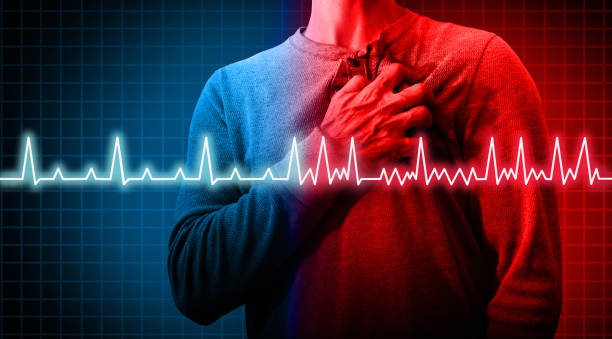Atrial fibrillation (AF) is a type of heart rhythm disorder that affects millions of people worldwide. AF occurs when the electrical signals controlling the heart’s rhythm become disorganized, causing the atria (upper chambers of the heart) to contract in an irregular and rapid manner. This can result in symptoms such as heart palpitations, lightheadedness, fatigue, and shortness of breath. In severe cases, AF can also increase the risk of stroke and heart failure.
The symptoms of AF can vary widely, and some people with AF may not experience any symptoms at all. However, common symptoms include:
Heart palpitations: A feeling that the heart is racing or fluttering
Lightheadedness or dizziness
Shortness of breath
Chest pain or discomfort
Fatigue
Sweating
Weakness or fainting
In some cases, AF can also cause more serious symptoms, such as:
Rapid or irregular heartbeat
Chest pain or pressure
Shortness of breath
Weakness or fainting
If you experience any of these symptoms, it is important to see a doctor for a diagnosis. Your doctor may perform a physical examination and use a variety of diagnostic tests, such as an electrocardiogram (ECG), a Holter monitor, or an echocardiogram, to diagnose AF.
Treatment for AF is based on the severity of the symptoms, the underlying cause of the condition, and the patient’s overall health. There is no one-size-fits-all approach to treating AF, but common treatments include:
Medications: Anti-arrhythmic drugs, beta-blockers, and calcium channel blockers are often used to slow down the heart rate and regulate the heart’s rhythm. In some cases, blood-thinning medications may be prescribed to prevent blood clots and reduce the risk of stroke.
Electrical cardioversion: In this procedure, a mild electrical shock is delivered to the heart to reset its rhythm.
Ablation: During this procedure, the doctor uses a catheter to locate and destroy the areas of the heart responsible for the irregular electrical signals that cause AF.
Surgery: In severe cases, surgery may be recommended to correct underlying heart problems, such as heart valve disease, that may be contributing to AF.
Lifestyle changes: Making changes to your lifestyle, such as quitting smoking, reducing stress, and maintaining a healthy weight, can help reduce the frequency and severity of AF symptoms.
It is important to work with your doctor to develop a treatment plan that is right for you. Treatment for AF may involve a combination of medications, procedures, and lifestyle changes, and the right combination of treatments will depend on your individual circumstances.
In conclusion, AF is a heart rhythm disorder that affects millions of people worldwide. Symptoms of AF can range from mild to severe and may include heart palpitations, lightheadedness, fatigue, and shortness of breath. Treatment for AF may involve medications, electrical cardioversion, ablation, surgery, or lifestyle changes, and the right combination of treatments will depend on your individual circumstances. If you experience any symptoms of AF, it is important to see a doctor for a diagnosis and treatment.

 Home
Home Health
Health Diet & Nutrition
Diet & Nutrition Living Well
Living Well More
More












